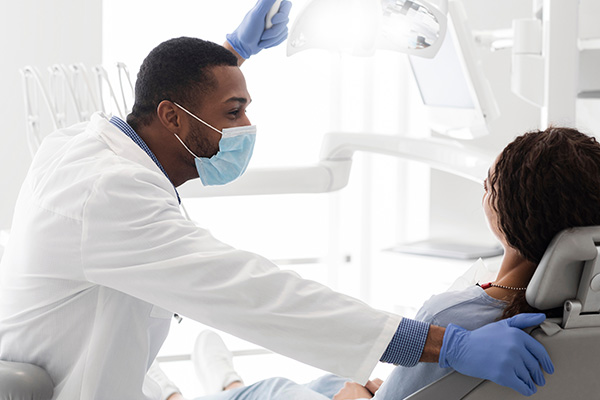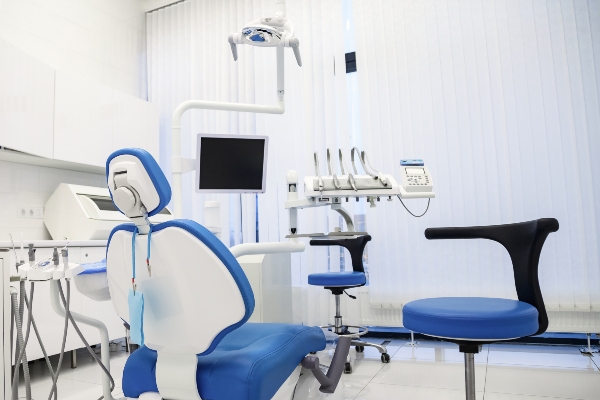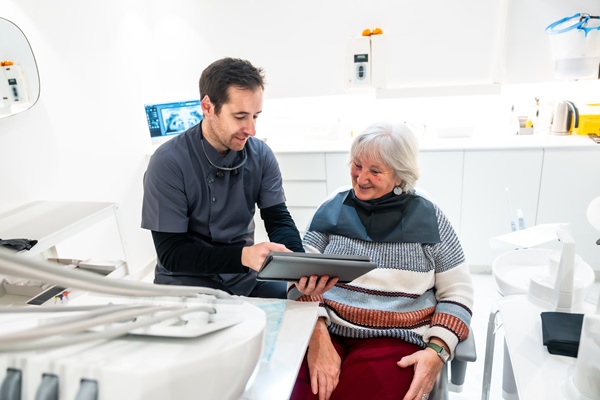How a Family Dentist Checks for Gum Disease at a Dental Check-Up

Gum disease can become quite serious if it goes ignored; however, with the help of a family dentist, it can be caught early on so that treatment can be quickly started. Family dentists are general dentists that specialize in working with families, which includes both the parents and children. Because family dentists specialize in general dentistry, they are trained to catch and treat gum disease. Ready to learn more?
How is gum disease checked for?
Below is an overview of how a family dentist checks for gum disease during a check-up appointment.
Examination
The main part of checking for gum disease is when the family dentist performs an examination. The examination includes a physical and visual part, both of which are important. The physical part is relatively quick and easy, and most of the time, painless. The family dentist will use their fingers to feel around the patient's mouth. Oftentimes, gum disease is exhibited through swelling and puffiness, which can usually be felt. The second half of the examination is the visual part, which is extremely important. The family dentist will carefully inspect every area of the patient's mouth, being sure to check for inflammation, redness or recession.
Probe
If the family dentist determines that there are some red flags during the initial examination, then they will move on to using a probe. A dental probe looks similar to a tiny ruler and it is used to measure the pocket depth of the gums. Healthy gums are between 1 to 3 mm in size, whereas unhealthy gums may have pocket sizes between 3 and 6 mm. If the gums are between 3 and 6 mm, then it is likely that gum disease is present. If gum disease is present, this part of the check-up can be uncomfortable. However, if the gums are in good shape, there should not be any pain.
X-rays
When a family dentist does detect gum disease or signs of an infection, they will also get an x-ray of the patient's mouth. X-rays can highlight bone loss, which may not be visible to the eye otherwise. The x-ray images can highlight if the bone beneath the gums has deteriorated, which will also indicate the stage of the gum disease. The family dentist can use the x-rays to determine the course of treatment, including whether or not a specialist is required. In some severe stages of gum disease, surgical procedures may be required to completely remove and treat the infection.
Get started today!
A family dentist is a great resource to utilize for routine check-up appointments, which often include a check for gum disease. If caught early enough, a family dentist can take the appropriate steps to treat the gum disease, thus improving oral health. Any questions or concerns regarding gum disease and how it is checked for should be addressed by a family dentist. Reach out today to learn more or to get started.
Request an appointment here: https://davisanddingle.com or call Davis & Dingle Family Dentistry at (803) 567-1804 for an appointment in our Columbia office.
Check out what others are saying about our services on Yelp: Read our Yelp reviews.
Recent Posts
A dental emergency can happen at any time. One of the most alarming involves a knocked-out tooth. Fortunately, a dental practice can handle these urgent cases and provide the necessary care to increase the chances of saving the tooth. These offices offer immediate treatment, professional guidance, and long-term solutions to restore your oral health.If a…
Implant restoration plays a vital role in restoring the appearance and function of a complete smile after tooth loss. Dental implants provide a strong, stable foundation, and the restoration process completes the treatment by adding a custom crown, bridge, or denture to complete the treatment. Implant restoration enhances aesthetics, chewing ability, and long-term oral health,…
Helping younger patients establish healthy dental habits starts with the right environment and guidance. From the first visit, a dental practice has the opportunity to set the stage for positive oral care habits that will last into adulthood. The approach taken during these early years can make a big difference in how children view oral…
Dental practices provide essential oral health services to patients of all ages. These services range from preventive and restorative treatments to cosmetic and emergency procedures. Understanding the types of care available at a general dental practice can help patients make informed decisions about their oral and overall health.Preventive care is a cornerstone of dental practice…


